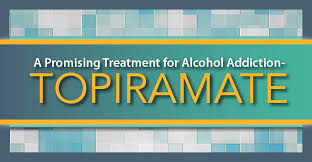Topiramate effective therapeutic medication for drinking

Islamabad, October 31 (Newswire): Neuropharmacologists ran clinical trials to find that a drug called topiramate is an effective therapeutic medication for decreasing heavy drinking and diminishing the physical and psychosocial harm caused by alcohol dependence.
The drug works by blocking the right amount of the feel good effects of alcohol (brought on by increased levels of dopamine), making drinking less enjoyable and thus reducing cravings and helping to stop heavy drinking.
Topiramate was also found to lower blood pressure and cholesterol levels which may lead to a decrease in heart disease in alcohol dependent patients.
Alcoholism affects over 17 million people. Without proper treatment, it’s a devastating disease that can ruin lives and relationships. A new therapy that comes in a pill is bringing new hope to alcoholics.
There was a time in Christine Flemming’s life when alcohol came before her kids.
“I can’t remember when my daughter was very little, because I was drinking so much,” said Flemming. “That affected me a lot.”
Flemming needed help, but traditional treatment methods didn’t work. Now she’s on a new kind of therapy in the form of a pill called topiramate. It has changed her life. “I can tell you that it cuts my cravings, and I don’t feel like I have to drink,” Flemming said. “I don’t feel like that’s something I need in my life and I have to do.”
Alcohol increases levels of dopamine, a chemical in the brain that makes us feel good. The drug works by blocking the right amount of the feel-good effects from alcohol to reduce cravings and help stop heavy drinking.
During clinical trials, neuropharmacologists were surprised to learn it also lowers blood pressure and cholesterol levels, which may lead to a decrease in heart disease in alcohol dependent patients.
“Most of the morbidity due to alcoholism is caused by secondary effects of all these other systems, so to have a drug that begins to correct all those other physical abnormalities is extremely helpful,” said Bankhole Johnson, Ph.D., a Neuropharmacologist at the University of Virginia in Charlottesville, Va.
The drug helped improve Fleming’s health and end her dependence on alcohol. She cut her drinking from 15 beers a day to just three, so time with her kids is now a priority.
“It’s made a big difference,” Flemming said. “It’s made a really big difference, and I feel like I’m actually there for my family.”





